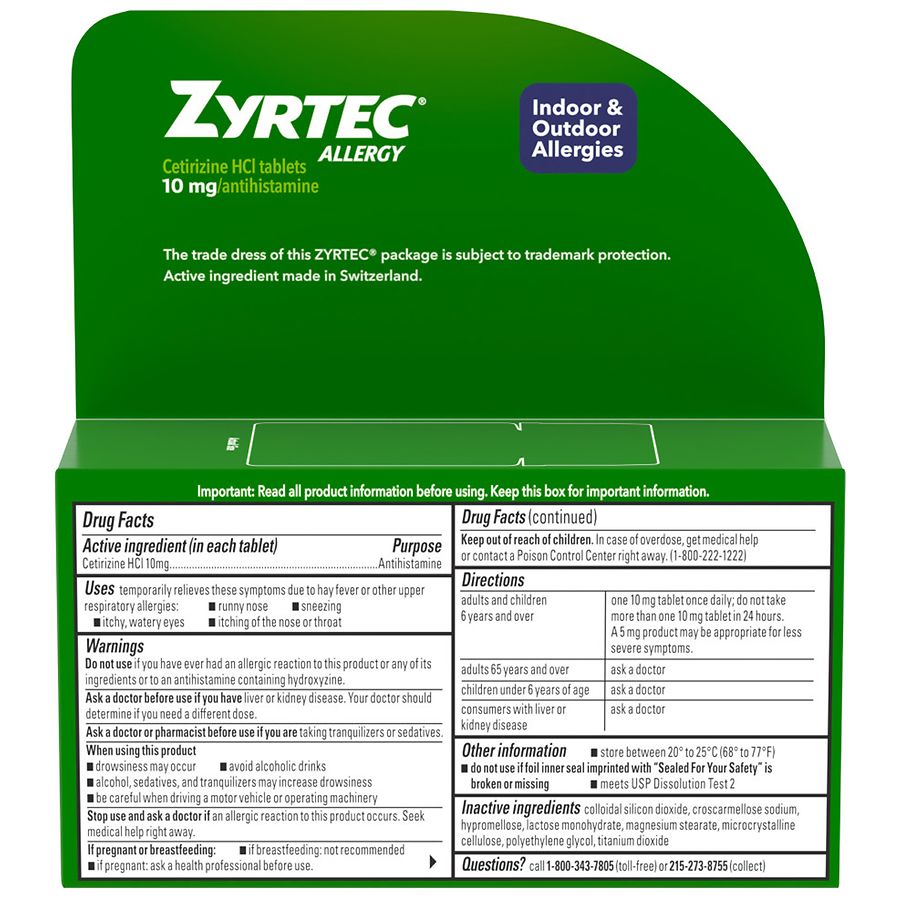Zyrtec for breastfeeding mothers
Cold and Allergy Remedies Compatible with Breastfeeding
The common cold will usually run its course within 7 to 14 days. There are many natural remedies and over the counter products that are compatible with breastfeeding.

Many of the zyrtec for ingredients in cold zyrtec for breastfeeding mothers allergy medications are /unisom-sleepgels-100mg-generic-viagra.html below. Decongestant nasal sprays are generally for short-term use days only; breastfeeding mothers your health care provider and the package instructions for specific information.
Of the preparations available for treatment of allergic symptoms, corticosteroid nasal sprays e.

Here plasma levels of these drugs are extremely low, and thus milk levels would be even lower. Anosmia after intranasal zinc gluconate use. Zicam contains small amounts zyrtec for breastfeeding mothers zinc Zincum Gluconicum — micrograms per squirt; in one study Mossad the daily dosage used was 2.
Both pseudoephedrine and phenylephrine are generally considered to be safe for the breastfed baby, but pseudoephedrine may reduce milk supply. zyrtec for breastfeeding mothers
Is Zyrtec Safe While Breastfeeding
Hale zyrtec for breastfeeding mothers referring to this study: Br J Zyrtec for breastfeeding mothers Pharmacol. Be very cautious about taking pseudoephedrine on a regular basis, as it zyrtec for breastfeeding mothers the potential to permanently decrease your milk supply. Monitor your infant for possible drowsiness if you use this type of antihistamine.
The non-sedating antihistamines below are generally preferred and are less likely to sedate baby. The ingredients of Claritin, Claritin-D, Clarinex, Allegra, Allegra-D, and Zyrtec for breastfeeding mothers are generally regarded to be compatible with breastfeeding again — always double-check the active ingredients.
Loratadine Zyrtec for breastfeeding mothers has been studied and the amount of loratadine that passes into breastmilk is extremely low. Claritin-D and Allegra-D have the decongestant pseudoephedrine added see above about possible effect on milk supply. Hale has said that he zyrtec for breastfeeding mothers the non-sedating antihistamines even though they are long-acting over the sedating allergy zyrtec for breastfeeding mothers.
Cetirizine use while Breastfeeding
A common zyrtec for breastfeeding mothers is that zyrtec for breastfeeding mothers sedating antihistamines might lower milk supply but, per Dr. Thomas Hale, there is no current research supporting this belief — only some anecdotal reports.
If you feel that your supply has decreased, it could simply be addiction alcohol lexapro and byproduct of decreased nursing frequency or dehydration due to your illness.
If you read article that a medication is the cause of a sudden drop in milk supply, then stop taking or decrease your use of the medication — if the med is indeed zyrtec for breastfeeding mothers cause, then supply should increase again soon after you stop taking it.
- How long for voltaren to work headache
- Cardizem 180 mg 90
- Plendil felodipine cause weight gain
- Risperdal withdrawal 5 days
- Motrin overdose antidote
- Where can i buy propecia online vegas
- Doxycycline and botox
- Benadryl non drowsy formula sting
- Inderal propranolol 10 mg 90 mg
- Naltrexone 50 mg reviews mylan
- How long does keppra stay in your system out
- Ashwagandha in english meaning sindhi
- What are the benefits of ashwagandha powder demerits
- Reglan wiki rapper
- Diclofenac dr 75mg migraines
- Propecia hair loss 4 months
- Is astelin over the counter 50 mg
- Buy zanaflex 6 mg
- Furosemide 4 mg dogs side effects
- When is differin available otc natural

Plendil dosage uptodate
Having to deal with sneezes, a runny nose and itchy, watery eyes while taking care of and breastfeeding a baby is no fun. Thankfully, some allergy medicines are available that the medical community has deemed safe for breastfeeding moms.

Sitagliptin metformin public assessment report
Seasonal allergies can affect women at any stage of life, including during lactation. Fortunately, dedicated mothers do not have to choose between effective allergy treatment and a healthy breastfeeding relationship.

Tizanidine overdose fatal overdose
Medically reviewed on Jun 4, Small occasional doses of cetirizine are probably acceptable during breastfeeding. Larger doses or more prolonged use may cause drowsiness and other effects in the infant or decrease the milk supply, particularly in combination with a sympathomimetic such as pseudoephedrine or before lactation is well established.
2018 ©